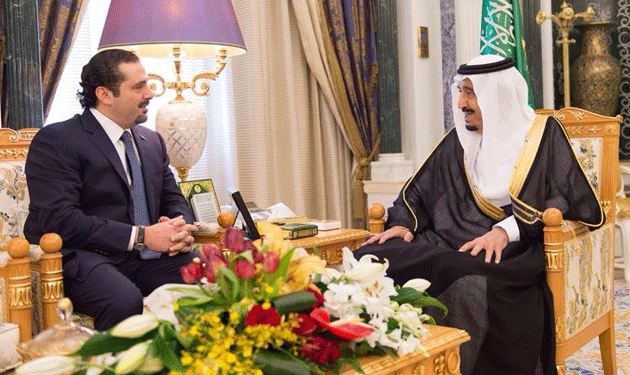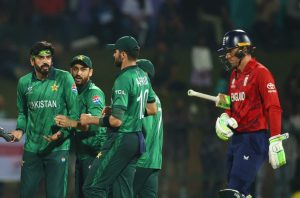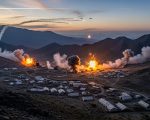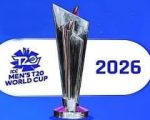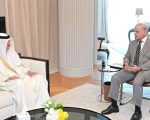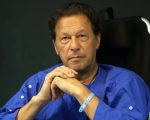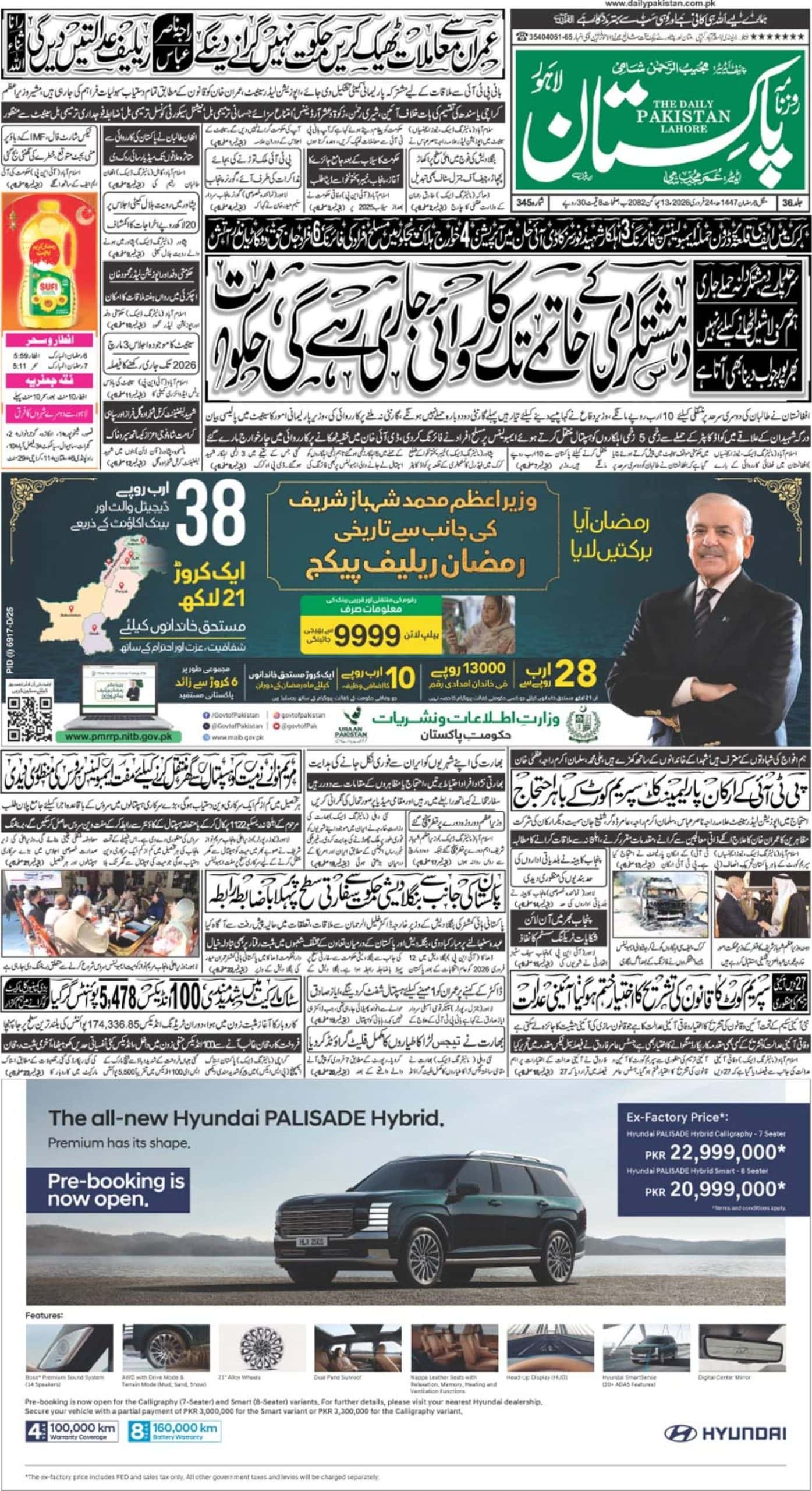The cruise missile intercepted over Riyadh on Saturday was in response to Saad Hariri’s resignation after escaping from Lebanon, a country whose government he heads. After a heated meeting with Iranian leader Ayatollah Khamenei’s top aide Ali Akbar Velayati over Tehran’s meddling in the country’s affairs. He then left for Saudi Arabia for consultations and eventually resigned via a live speech aired on al-Arabiya al-Hadath channel. Lebanese President Michal Aoun, a Christian affiliated with Hezbollah, refuses to accept the resignation till Hariri returns to Beirut.

The 47-year-old, who took office on December 18, suspects that Hezbollah is plotting “to kill” him as they did to his father Rafik Hariri, then prime minister of Lebanon. A Special Tribunal for Lebanon indicted Hezbollah operatives Salim Jamil Ayyash, Hassan Habib Merhi, Hussein Hassan Oneissi, and Assad Hassan Sabra in absentia.

“Over the past decades, Hezbollah has unfortunately managed to impose a fait accompli in Lebanon by the force of its weapons, which it alleges is a resistance weapon,” Hariri said. “Lebanon and the great Lebanese people came in the eye of the storm and were subjected to international condemnations and economic sanctions because of Iran and its arm Hezbollah.”
Responding to the move, Hassan Nasrallah, secretary general of Hezbollah, spoke live on the party-owned propaganda outlet, Al-Manar TV. “The resignation was a Saudi decision. Prime Minister Saad Hariri was told and forced to do so.”

Time has proven that the Hariri family can withstand the worst intimidation. Thus, Saad is expected to return to Beirut this week. He sent out a clear message of boldness in the face of an enraged Hezbollah. The country is a ticking time bomb of chaos with the economy in a downward spiral and the social fabric sweltering in sectarian and ethnic wrath.
Hezbollah, one of the most well-armed non-state actors in the world, has been fighting against Bashar al-Assad’s opponents in Syria while keeping Lebanon’s constitution and governance paralyzed. The current political crisis is a much-delayed reminder to the militia that its claim over Lebanon is far from settled. From the question of the armed militia’s legitimacy to the worsening state of governance, Hezbollah emerges as more of an existential threat to Lebanon than Israel is. (Economy and governance have both been paralyzed predominantly due to Hezbollah’s coercion).
For decades, Saudi Arabia has provided billions of dollars to the country through official channels. The Kingdom is not giving up in the wake of Hezbollah and Iran’s squeeze. Now, eliminating Saad Hariri from the political landscape through brute force is no longer a feasible option for the militant outfit. His meeting with the Saudi king puts Aoun in a serious quandary: a) it seems fairly obvious that the Sunni leader won’t head a government whose hands are tied; b) since the bargain simply seems impossible through talks after his return, what would the viable alternatives be for Beirut? c) the way Riyadh has backed up Hariri coupled with the remark the Lebanon is declaring war on it, the political crisis in the country can be indefinite; d), Hezbollah has been singled out for its rhetoric and actions both. For General Aoun, it’s a time to stand up for Lebanon instead of his party or the sponsors elevating him to the presidency.
Spreading chaos has always been a tool for breaking the status quo. Iran’s regime calls it anti-imperialism. It has gained from Saddam’s occupation of Kuwait and the ensuing events. The same holds true for the Arab uprising in Egypt and Yemen as well as in Syria. Thus, Saudi Arabia calling Iran out on the Riyadh missile attack and Lebanon intervention must help its disruptive narrative. Already, the Houthi-fired allegedly Irani cruise missile has left the diplomatic community agitated. Riyadh shared details and pictures of the projectile’s scavenged parts through the media. Tehran has yet to condemn the attack but in the same breath, it blames it on Yemeni militia. Meanwhile, tighter blockade of Yemen’s land, air, and sea border will follow intense targeting of Houthi safe havens and storage depots. Saudi Arabia seems intent on using the time to effectively squeeze two key non-state foes – Houthis and Hezbollah, raising the cost for Iran.

In an ideal world, a state at war on multiple fronts would maintain peace within. Saudi Arabia is not one of those. Saturday night’s anti-corruption operation was no less than an earthquake measuring 7 on the Richter scale. Some of the richest and best-known Saudi businessmen, former crown prince, and naval chief were amongst those detained for corruption and mismanagement charges. Though the supreme committee led by Crown Prince Mohammad bin Salman has frozen their assets, the hurriedly vacated Ritz Carlton serves as a temporary abode for the high-profile suspects. The world is awash with questions varying from ‘why this purge’ to ‘will there be a backlash?’ and ‘is it the end of Saud family rule over Hejaz?’
Firstly, the two developments unfolding on Sunday are not inter-related as both sprung from two different chain reactions. Over-assertive of Iran after JOCPA and new Saudi leadership’s zeal to break the introvert shell hasten the developments. However, King Salman’s drive against corruption may well be an of Vision 2030 doctrine that requisites a transparent, efficient and accountable government but one has implications for the other. The country’s internal stability adds up to its decision-making concerning challenge abroad.
Secondly, the narrative suggesting the anti-corruption drive as a ‘purge’ is a crucial one to be addressed. Critics of Riyadh claim that the king has removed remnants of his successors in the court while putting the likely dissenting voices in detention. Not all the cousins of Mohammad bin Salman and other officials mattered in the state affairs, but some of them surely did. On the other hand, the crown prince has repeatedly stated that due to the archaic system in place, the country loses some $80 billion a year. He believes that the country’s transition and reformation can’t take place without ending entitlement. The officials have publically stated that the probe in financial wrongdoing including money laundering has been ongoing for months. Thus, the official version holds good ground while conspiracy theories of consolidation of power remain popular on mediascape.
The king’s decrees allowing women to drive, revision of Hadith to return moderate Islam and seeking investment for a Dubai-like city on the Red Sea coastline were bold moves, capable of annoying the establishment. Some of the detained Saudi figures may have opposed the decisions. However, not all of the detained citizens are meant to serve prison sentences. Ritz Carlton is a perfect avenue for reflection, bargain, and coercion. For instance, reality must have already started to sink in for world-renowned business tycoons and media moguls after registering losses in the company share prices on the stock market. The monarch’s inner circle too will start to have its moments of reality checks. Will there be foreign investment in a country that does not accord the right to fair and transparent trial? Richard Branson may not agree.

It might be easy to paint all of Saudi Arabia with a broad brush, but in reality, the country is a complex cobweb of tribes with each having a deep sense of history and internal powerplay. Suppose, the ongoing anti-corruption drive is an act of purge, history is repeating itself but with one vivid difference: disruption leading to liberalization. For the likes of Thomas Friedman, who hopes for an uprising or the collapse of the Saud dynasty, it’s time to read the history books again. Unless there is a 21st TE Lawrence backed by a powerful country, an outbreak of mass movements and overthrow through palace intrigues against the sitting king appears remote.
In the long run, three factors seem crucial for the kingdom’s fate: a) Saudi Arabia’s ability to maintain its regional influence and alliances with powerful states vis-à-vis Iran, b) the outcome of the Yemen war and Lebanon’s resilience against Hezbollah and Iran’s interference, c) the degree of success in achieving social reforms and economic transformation. Not only for Gulf region but also for MENA and the western world, peace and stability partly also depends on the survivability or lack thereof of the Khomeinists in Iran.

